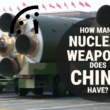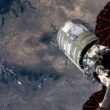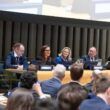Science for peace
By Suvrat Raju, October 1, 2015
Earlier in Round Three, my colleague Akira Kawasaki discussed the dichotomy between Japan's stated principles, which advocate disarmament, and its policies, which do not advance this cause. Mustafa Kibaroglu performed a similar analysis for Turkey. The same dynamic exists in other places. For example, the United Kingdom is committed to nuclear disarmament under the Nuclear Non-Proliferation Treaty, but when the Labour party recently elected a new leader who opposes nuclear weapons, the ruling Conservatives described him as a "threat to national security." But to conclude this roundtable marking the 70th anniversary of the Hiroshima and Nagasaki bombings, I feel it is appropriate to return attention to the United States, which carried out those attacks.
US nuclear policy remains an urgent issue today—among other reasons, because of Washington's ongoing military involvement in West Asia and its dispute with Iran. In this context, several aspects of the US debate on the Iran nuclear deal give cause for concern.
The mainstream US debate has been confined within narrow boundaries. On one hand, Senate majority leader Mitch McConnell argued in September that there was "no question that Iran's nuclear program [was] designed to develop a nuclear weapon" and lamented the Obama administration's "acquiescence to Iranian hegemony." The speaker of the House, John Boehner, criticized the deal for not allowing "inspectors to have anywhere, anytime, 24/7 access." To allay such concerns, 29 leading American scientists had written to President Obama in August, describing the deal as "an innovative agreement, with … stringent constraints"—but also suggesting that "the detection of a significant violation of this agreement will provide strong … justification for intervention."
However, this defense of the deal fails to note a fundamental issue: Evidence that Iran has recently pursued nuclear weapons is thin. Indeed, Mohamed ElBaradei, the former director general of the International Atomic Energy Agency, recounted that when the United States produced "evidence" for Iran's weaponization program, "the problem was, no one knew if any of [it] was real." Later, when Yukiya Amano replaced ElBaradei, the agency altered its stance. But this is hardly surprising in light of leaked diplomatic cables from the US mission in Vienna. The cables described Amano's elevation as a "once-a-decade opportunity"—partly because Amano "was solidly in the US court on every key strategic decision … [including] the handling of Iran’s alleged nuclear weapons program."
Furthermore, it is necessary to recall that Iran has never conducted an attack within the borders of the United States and is unlikely to do so in the foreseeable future. The US government, meanwhile, backed a 1953 coup that unseated the democratically elected Iranian government of Mohammad Mosaddeq. In the 1980s, Washington supported Iraq during the Iran-Iraq war and, in 1988, the US Navy shot down a civilian Iranian airliner, killing 290 passengers. More recently, Washington has aided the Jundallah terrorist group in southeastern Iran.
The history of arms control inspections in Iraq is also relevant, particularly regarding the "anywhere, anytime" demand. Scott Ritter, a UN weapons inspector who participated in Iraqi inspections in the 1990s, noted that the United States used the process "as a Trojan horse to insert intelligence collection capabilities to go after Saddam Hussein."
These facts explain the Iranian government's reluctance to open its military facilities to intrusive inspections. They also illuminate US objectives in West Asia: US policy makers are primarily concerned with preserving US dominance in the region and not with national security. So Tehran presents a problem: It is not bound by Washington's directives, unlike Israel, Egypt, and Saudi Arabia, which depend on US aid and support.
The United States could ensure security by insisting that Israel join a nuclear-weapon-free zone in the Middle East and by publicly abjuring the use of force against Iran, instead of emphasizing how military action remains on the table. These measures have already been endorsed by a majority of the world's governments through the Non-Aligned Movement, but American scientists are often apprehensive about articulating them for fear that they will not be taken seriously in Washington. However, the upcoming US election offers an opportunity for progressive scientists to move beyond providing advice and support to Democrats—who, after all, differ from their Republican colleagues only in advocating a more realistic approach to Washington's program of dominance. By combining their technical knowledge with internationally accepted political propositions, they can intervene directly in the public debate on Iran to expose the contradictions of US nuclear policy and strike a blow for peace.
Topics: Nuclear Weapons
Share: [addthis tool="addthis_inline_share_toolbox"]














